
What is Korean KC certification?
Data shows that South Korea boasts a high e-commerce penetration rate, with internet penetration exceeding 97%, making it one of the most developed e-commerce markets globally. The online shopping market exceeds $142.9 billion.
Faced with this trillion-dollar potential cross-border e-commerce market, platforms such as Amazon, AliExpress, and TEMU are accelerating their development towards South Korea.
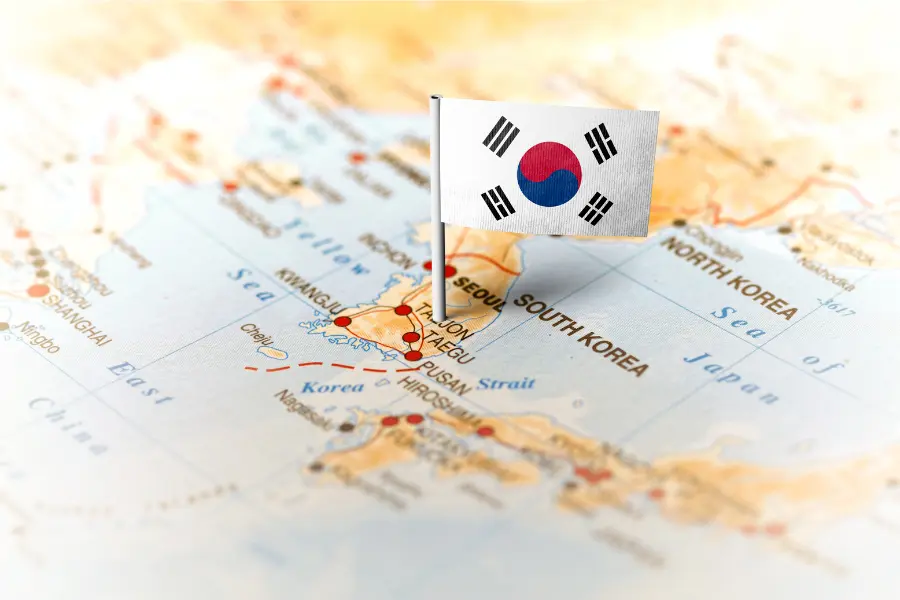
However, the South Korean market has strict safety standards for imported products. To expand into the South Korean trade market, understanding South Korea's certification qualifications and product requirements is essential. This issue will introduce the most common kc certification in South Korea.
What is Korea's KC Certification?
KC Certification (Korea Certification), also known as KC Safety Certification or KC Mark Korea Certification, is a unified national certification standard implemented by the Korean National Standards Committee on January 1, 2009. It is a mandatory safety certification system for products entering Korea.
The KC mark and the corresponding KC certificate are similar to the European CE mark. If products that require certification are sold in Korea without obtaining KC approval, they may be subject to recall orders and additional economic penalties or sales bans on manufacturers, importers, and/or sellers.
KC certification includes KC Safety Certification, KC emc certification, KC RF Certification, and MEPS/E-Standby energy efficiency requirements. These certifications are regulated by different competent authorities to ensure that products comply with Korea's safety, electromagnetic compatibility, radio frequency, and energy efficiency standards.
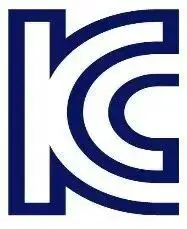
What Products Are Subject to Korea's KC Certification?
The KC safety certification system involves three main categories of products: electronic products, household products, and children's products.
- Electronic Products: All electronic and electrical products, including wires and cables, electrical switches, household appliances, power tools, audio and video equipment, lighting machinery, etc.
- Children's Products: For example, toys, children's and baby textiles, child seats, study supplies, children's bicycles, etc.
- Household Products: General consumer goods for daily use, such as household appliances (e.g., refrigerators, dishwashers), audio and video equipment, eyeglass frames, fans, tents, motorcycle helmets, vehicles, and accessories.
For more details, visit the official Korea Certification website: www.korea-certification.com/en/kc/what-is-kc-certification/
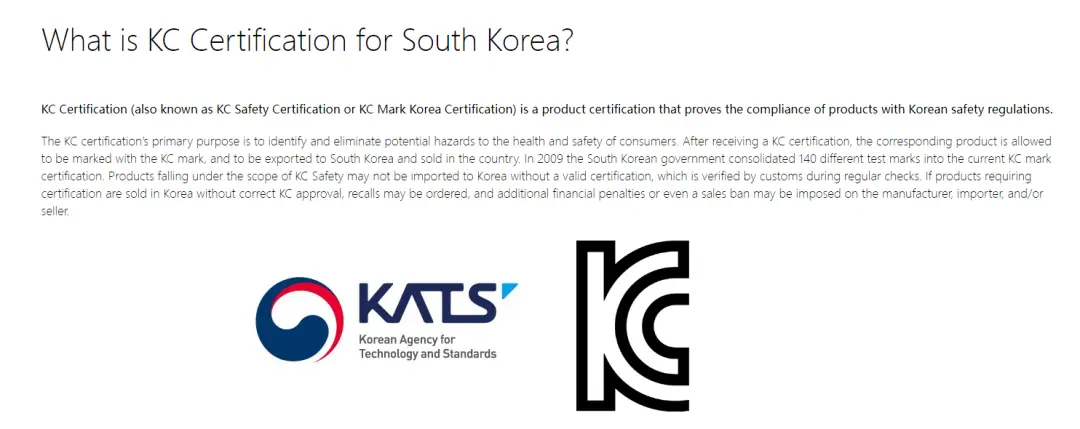
What Are the Cycle and Validity Periods of Korea's KC Certification?
According to the "Korean Electrical Appliance Safety Management Act," effective January 1, 2009, electrical appliance safety certification is divided into mandatory certification and self-regulatory (voluntary) certification.
- Mandatory Certification: All electronic products that fall under mandatory products must obtain kc mark certification before they can be sold in the Korean market. Annual factory inspections and product sampling tests are required.
- Self-Regulatory (Voluntary) Certification: All electronic products that fall under voluntary products only need to be tested and certified without factory inspections. The certificate is valid for five years.
Mandatory safety certification must be held by the factory, while other types of certification can be held by the factory, manufacturer, or importer. The application cycle for KC certification generally ranges from 4 to 5 weeks. To ensure the certification remains valid, companies need to pay attention to renewal requirements.
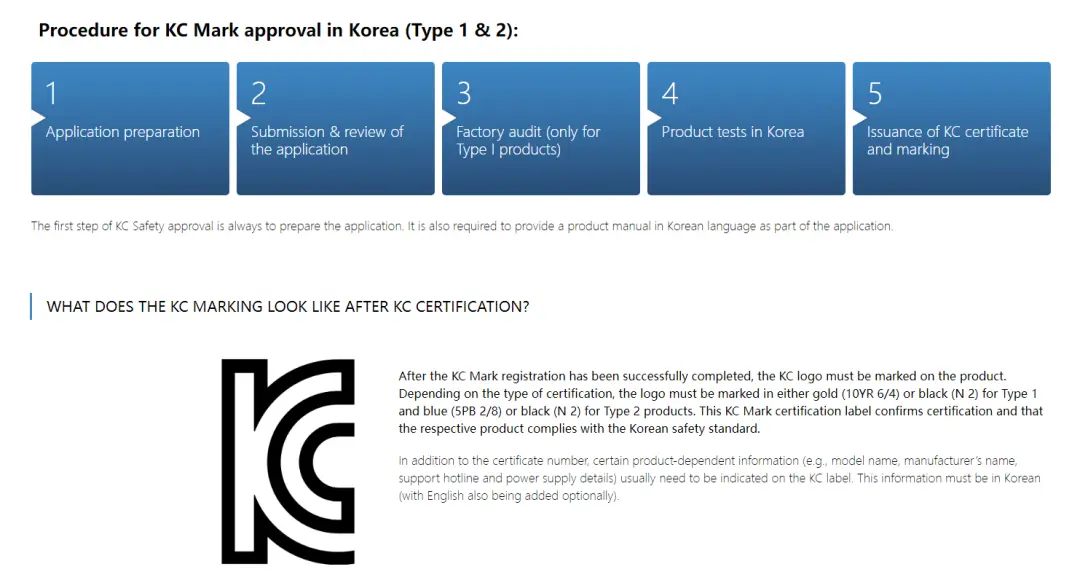
What Are the Processes and Materials Required for Korea's KC Certification?
The KC certification process involves several steps: preparing application documents and applying → registering with a Korean certification body → factory audit (only applicable to Korean safety certificates) → product testing at an accredited testing laboratory → reviewing all documents and issuing the KC Mark certificate.
To obtain the KC mark, products must undergo safety testing by internationally recognized testing institutions.
Once a product has successfully obtained Korean market certification, the KC Mark certification label must be displayed on the product. Depending on the certification type, the KC mark is usually labeled in blue or gold and accompanied by a certificate number.
Additionally, certain product information such as model name, manufacturer, and rated voltage must be indicated on the label. This information must be in Korean, while English is optional.
KC Required Application Materials:
1. Electrical Appliance Safety Certification Application (Mandatory)
2. Electrical Appliance Self-Regulatory Safety Confirmation Application and Electrical Appliance Self-Regulatory Safety Confirmation Declaration (Self-Regulatory)
3. List of components directly affecting safety
4. Electrical circuit diagram
5. Detailed specifications of the transformer (if applicable)
6. Insulation material catalog (temperature, voltage characteristics, or flame resistance grade, etc.)
7. Product manual (including Korean product manual)
8. Label (Marking Label)
9. Proof of authorization for agents (mandatory; required for self-regulation when applied by an agent)
10. Questionnaire (only for mandatory certification)
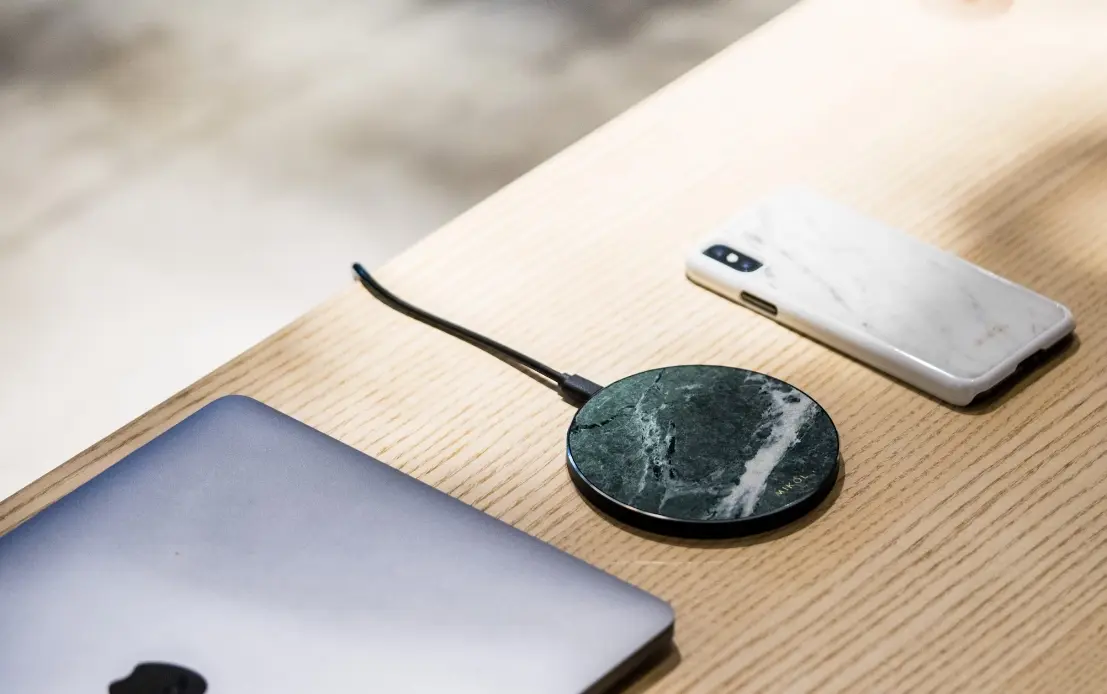
Common Questions About Korea's KC Certification
Can KC Safety and KCC/EMC Certificates for the Same Product (Same Model) Be Applied Separately by the Factory and Importer? Must the Applicants for KC Safety and KCC/EMC Certificates Be Consistent? How Does This Affect Later Customs Clearance?
For the same product, KC Safety and KCC/EMC certificates can be held separately by the factory and the importer, with different holders for the two certificates.
For example, the safety KC certificate can be held by the factory as the applicant, while the KCC/EMC certificate can be held by the Korean importer, or the safety KC certificate can be held by the importer, and the KCC/EMC certificate can be held by the factory. However, if the importer holds the certificate, it can only be used by that importer. If the factory needs to add a new importer later, a new KC safety or KCC/EMC certificate for the new importer must be issued.
However, it is important to note that if both certificates are held by Korean importers, the applicants must be consistent. If the safety KC certificate applicant is Importer A, the KCC/EMC certificate applicant must also be Importer A and cannot be Importer B.
Which Products Can Be Sold Without KC Certification?
Among the 250 safety management target products, 215 categories are exempt from KC certification. In addition, even if the products sold or their packaging do not bear the KC mark, they must indicate that "this product is a proxy sales product" and "this product is subject to safety management under the Electrical Appliances and Consumer Goods Safety Management Act."
The product exemption range includes: bulbs installed in indoor fixed lamps or E-type desk lamp holders, single-cell manganese dry batteries or alkaline manganese batteries for daily use, some electric heaters, etc.
Requirements for Displaying KC Certification Information on Products
If a product has successfully obtained Korean market certification, the KC Mark certification label must be displayed on the product. Depending on the certification type, the KC mark is usually labeled in blue or gold and accompanied by a certificate number.
The KC mark must meet the following requirements:
1. The KC certification mark should vary according to the size of the product.
2. It should be identifiable on the product or container and packaging, marked in a manner that does not easily fall off, such as printing or engraving.
3. The KC certification number should be displayed adjacent to the KC certification cover.
4. Safety standard matters should be listed in Korean or English.
Email:hello@jjrlab.com
Write your message here and send it to us
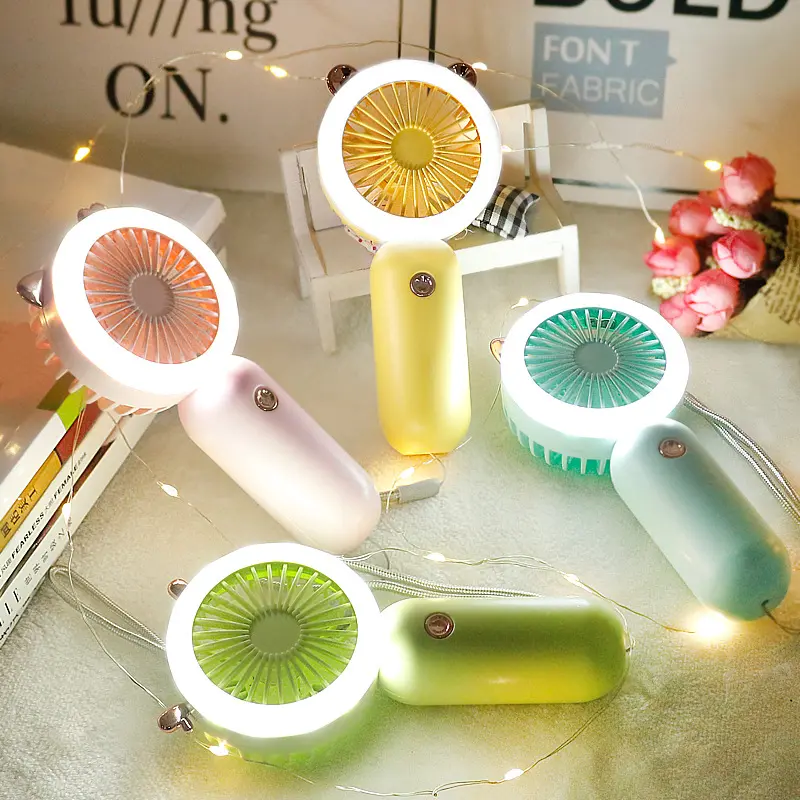 FCC Certification Fees for Handheld Fans
FCC Certification Fees for Handheld Fans
 FCC Certification Testing for Smart Lighting Produ
FCC Certification Testing for Smart Lighting Produ
 What is the ETSI EN 303 645 Testing Standard?
What is the ETSI EN 303 645 Testing Standard?
 UL Compliance and ETL Certification for LED Lighti
UL Compliance and ETL Certification for LED Lighti
 What is the IEC 60598 Standard?
What is the IEC 60598 Standard?
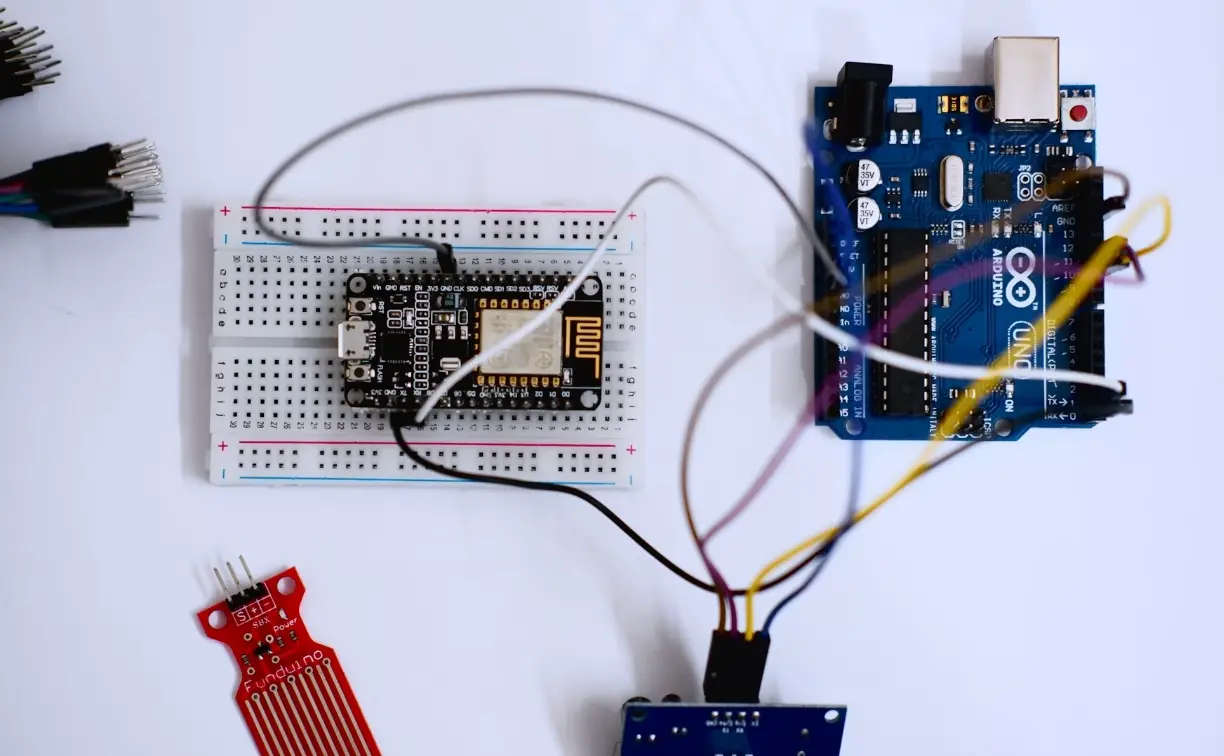 What is the Canada IC Logo?
What is the Canada IC Logo?
 EMC Pre Compliance Testing
EMC Pre Compliance Testing
 PAHs Testing (Food and Textile)
PAHs Testing (Food and Textile)
Leave us a message
24-hour online customer service at any time to respond, so that you worry!




